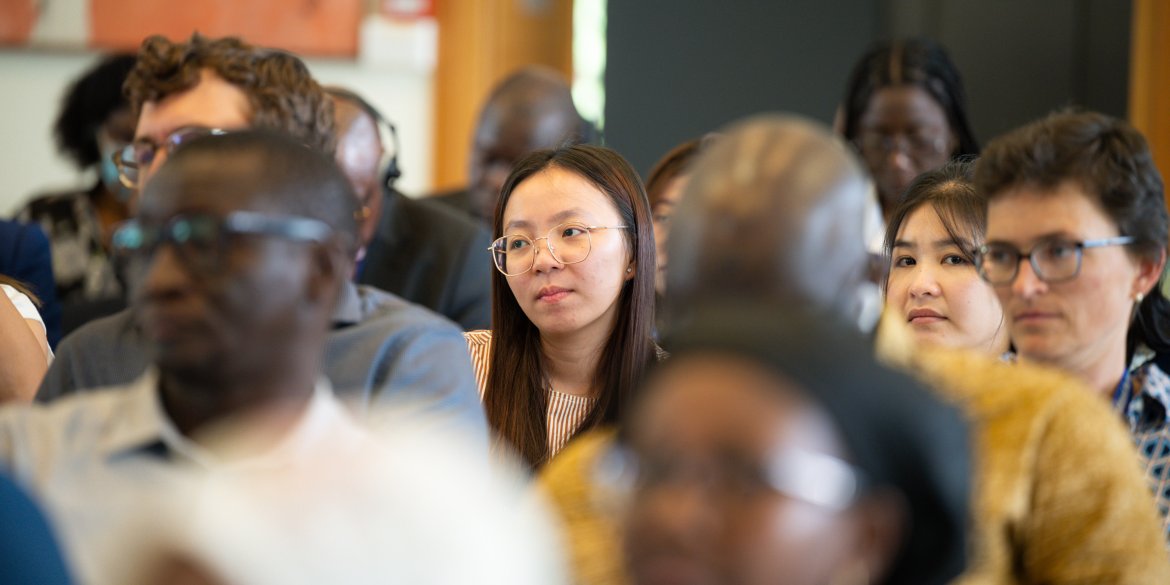Championing social security: Lessons from the ITCILO Academy
Championing social security: Lessons from the ITCILO Academy
Advancing social justice, strengthening resilience, and rebuilding the social contract between states and societies
9 Octubre 2024
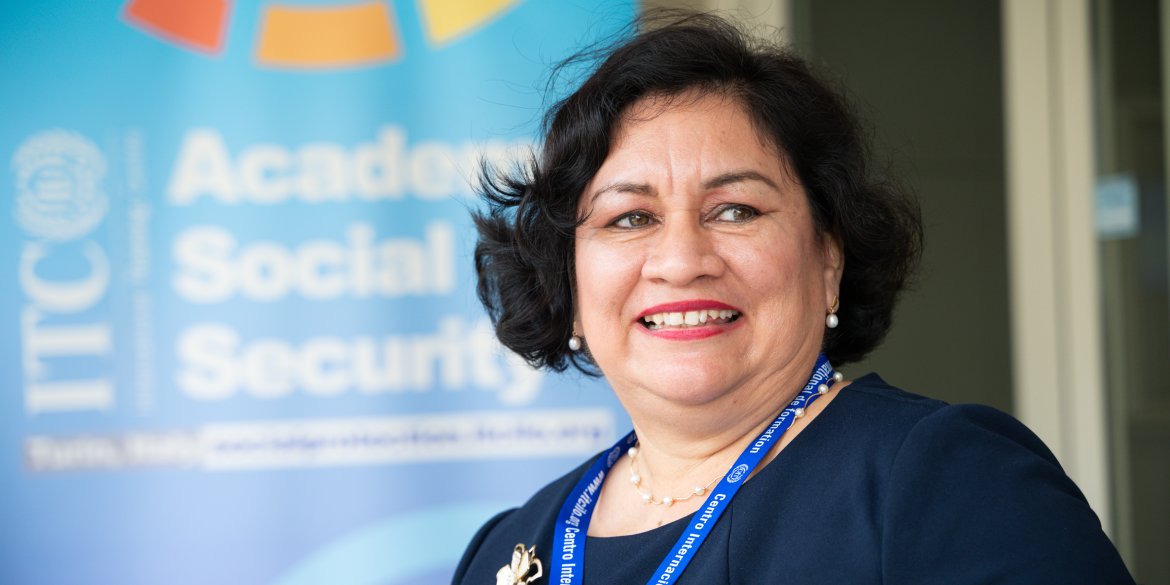
In a world increasingly affected by climate change, social security has become more vital than ever. As Ms. Shahra Razavi, Director of the International Labour Organization’s Universal Social Protection Department, emphasizes, "Social protection systems are essential for cushioning the impact of climate policies, particularly on vulnerable workers."
To help addressing this pressing need and other related issues, the International Training Centre recently hosted the annual Academy on Social Security attended by over 150 participants from 45 countries at the ITCILO campus in Turin, Italy.

During the Academy's inauguration, Charles Crevier, Programme Manager, emphasized the relevance of the task at hand: “The 45 nationalities represented here today account for approximately 5 billion people who expect comprehensive welfare systems from their countries. Your investment of time in this learning journey reflects a leap of faith in your commitment to the cause.”
The Academy brought together diverse practices and challenges and this environment fostered unique stories and meaningful knowledge sharing. Moreover, the program built upon the expertise of over 40 dedicated international experts and staff members, providing invaluable insights and contributing to a productive learning experience.
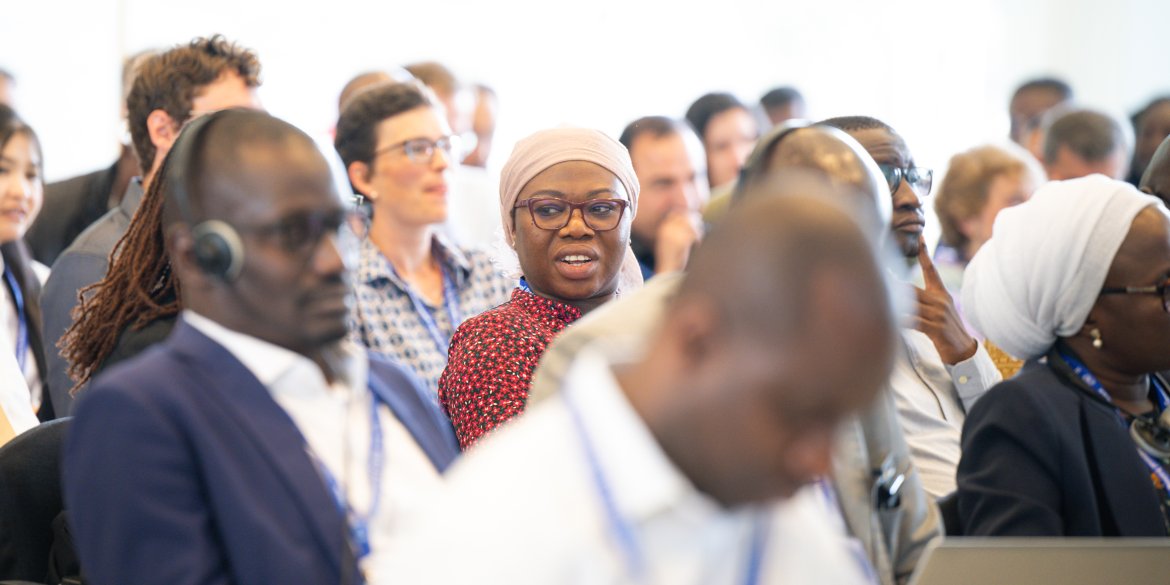
Each day kicked off with plenary discussions led by renowned global experts, focusing on pressing topics such as the shifting landscape of social security, achieving universal coverage, closing financing gaps, addressing climate action and social justice, and leveraging data to advocate for stronger systems.
The plenaries laid the groundwork for more specialized discussions, allowing participants to explore key themes like policy development, innovative planning, and strategies for adapting social security systems to meet the demands of a rapidly changing world.
Afterward, attendees had the opportunity to participate in targeted elective courses, customizing their learning experience to align with their individual interests and professional needs – from designing and financing welfare systems to expanding coverage for informal and rural workers, leadership in public administration, and pension reform.
This balanced combination of broad, foundational plenary sessions and targeted elective courses provided participants with a well-rounded, customizable learning experience, equipping them with both the theoretical and practical tools.
Setting the Scene: Universal Social Protection for Climate Action and a Just Transition
At the Academy’s Opening Ceremony, Ms. Razavi set the stage by drawing on insights from the newly released ILO World Social Protection Report. She emphasized the profound impact of climate change on societies, noting how disruptions to businesses, especially micro and small enterprises, can lead to significant employment challenges. “Workers risk losing contact with the labour market, making reintegration difficult,” she observed, highlighting the potential long-term effects on livelihoods.
As countries adopt climate policies, the social consequences can be far-reaching. For example, rising energy prices may spark resistance from people who feel their wages are being eroded. Ms. Razavi stressed that "social protection plays a crucial role in making necessary climate policies more acceptable." She called for increased investment in systems like unemployment benefits and retraining programs, which can help workers transition from traditional industries to emerging green sectors.
However, Ms. Razavi also pointed to significant gaps, particularly in child benefits. She presented alarming statistics, revealing that “76% of children worldwide lack coverage,” a shortfall that worsens child poverty and neglect - issues made more acute by a climate crisis that disproportionately impacts the youngest members of society.
Identifying barriers, Ms. Razavi pointed to labour market informality as a significant challenge. “Two billion workers are in the informal economy, the vast majority of whom are not covered by any form of welfare,” she stated, highlighting the need for policies encouraging small enterprises to formalize and contribute to comprehensive systems.
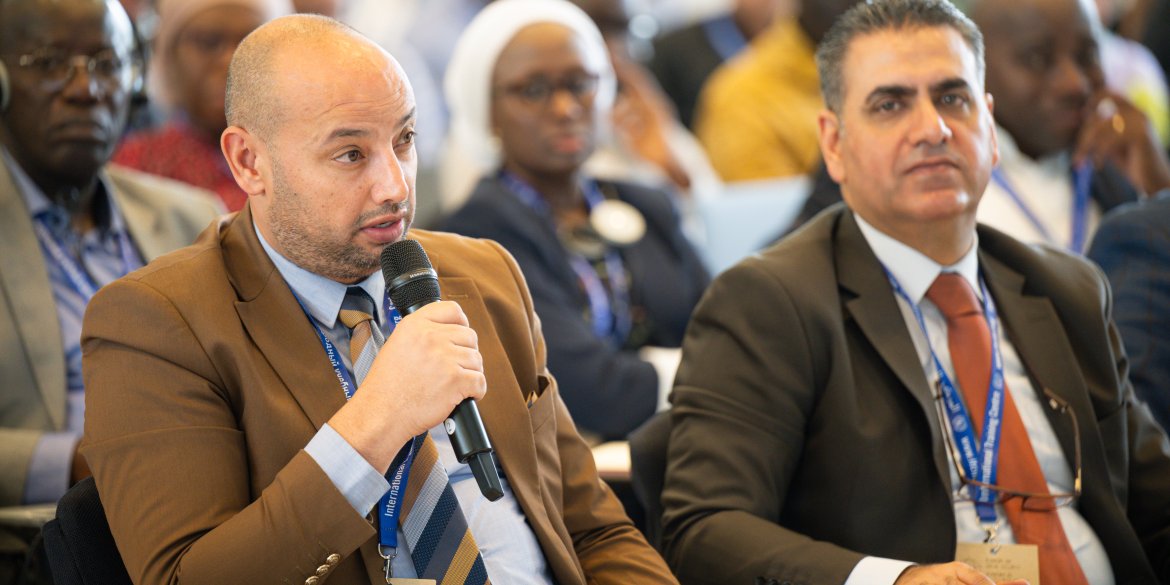
A substantial financial investment is needed, especially in low-income countries. Ms. Razavi noted, “The financing gap for a social protection floor is approximately 3.3% of GDP in low- and middle-income countries.” Innovative taxation strategies and effective public spending are essential to closing this gap, ensuring adequate support during crises.
In conclusion, Ms. Razavi emphasized the state’s responsibility in building and maintaining adequate welfare systems: “We cannot solely rely on liberalization and market forces; states still have vital roles to play.” A rights-based approach is fundamental, ensuring that people can trust these systems to support them in times of need. "Rebuilding the social contract between the state and society is vital," concluded Ms Razavi.
Sharing Knowledge and Experience: How to Become a Champion of Change
In a world where, as Ms. Razavi highlights, the importance of social security is more critical than ever, the need for professionals thoroughly dedicated to advancing social welfare continues to grow.
One of the key objectives of the ITCILO Academy on Social Security is to meet this demand. This year’s edition featured a dynamic session titled "Knowledge-Sharing with Social Protection Champions," where three outstanding graduates shared their experiences and insights, showcasing the transformative power of education and collaboration in the field.
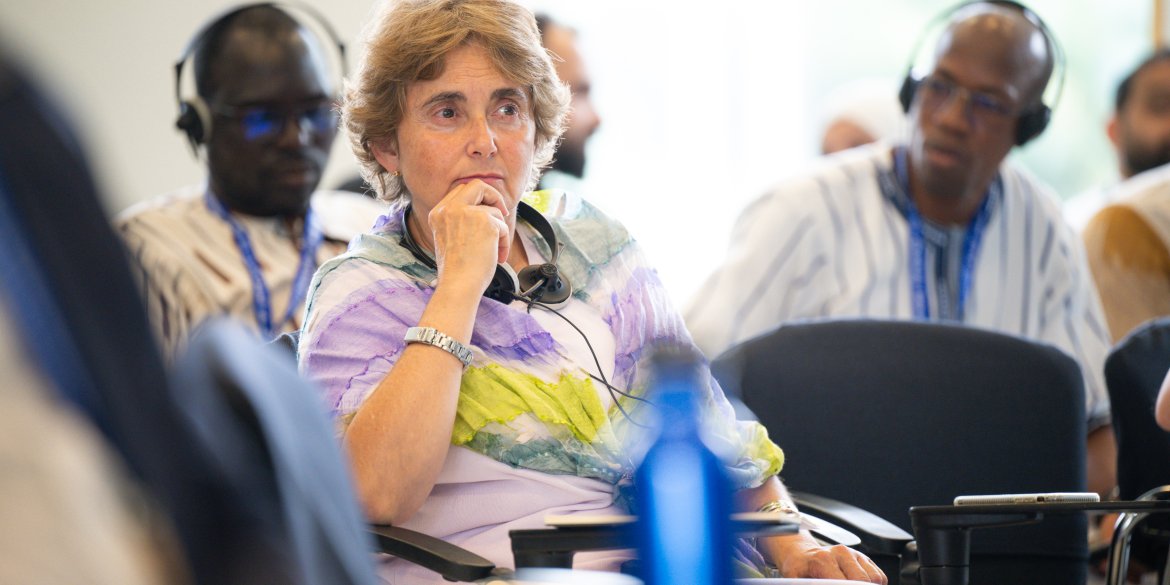
Innovating Spain’s pension system
The first champion to speak was Maria Paz Sanz y Sanz, a seasoned expert from Spain. Maria Paz began her journey at the Academy, delving into the complexities of her country’s pension system. With passion, she shared, "Over the last five years, I began studying the pension system, starting here at the Academy. I fell in love with the ILO and continued to take other courses."
She highlighted Spain's pressing challenges, particularly its aging population and financial sustainability issues. Maria Paz participated in two key reforms in the pension system: automatic adjustment mechanisms and equity measures, designed to balance the system and adapt to demographic changes. However, she noted that these are only "pre- or semi-reforms," stressing that more comprehensive changes are needed to address long-term challenges like the aging population and labour market dynamics. These reforms, she said, are “only the first step to resolve the problem, not the unique solution.”
Finally, she emphasized the importance of continuous learning and adaptation in the face of evolving challenges. "Please don’t stop learning. If you engage with the ILO and ISSA guidelines, you can find ways to tackle your issues," she advised, underscoring her commitment to advocacy and innovation.
Social security reforms in Côte d'Ivoire
Next was Yoro Balé Lucas Innocent Botti, who brought a fresh perspective from Côte d'Ivoire. An actuarial expert at the Caisse Nationale de Prévoyance Sociale, Lucas has undertaken extensive training since 2020, earning a diploma as a Social Protection Analyst.
“This training allowed us to implement structural reforms and introduce innovations in managing the welfare system at the CNPS," Lucas shared. "Our focus included improving financial management, drafting national policies, and extending coverage to previously unprotected autonomous workers."
Another remarkable achievement was reforming child benefit schemes, helping to reduce gaps in coverage and address child labour. These efforts have optimized Côte d'Ivoire's social security system, assisting policymakers in developing more effective strategies.
A voice for vulnerable populations in Belize
Finally, Leticia Vega took the stage, proudly representing Belize. Leticia’s dedication to advocating for vulnerable populations shone through as she shared her journey. "I have been in the social security system for over 16 years, working on access for vulnerable populations," she explained, outlining her commitment to ensuring that marginalized voices are heard and valued.
Leticia detailed her efforts in implementing a national health insurance program targeting informal workers, highlighting the importance of community engagement. "I learned the importance of listening to vulnerable groups, understanding their needs, and addressing them effectively. This is the key to change," she asserted, calling on her fellow participants to harness the knowledge gained at the Academy for meaningful change in their communities.
The Way Forward: A Collective Call to Action
Each learning session, elective course or champion's story contributed to reinforce the Academy's mission: to inspire professionals to become change-makers in their countries. As participants reflected on their own experiences and shared stories, each session exemplified the transformative impact of the Academy on individuals and their communities. With former participants and world-class experts leading the way, the future looks promising, fuelled by innovation, collaboration, and unwavering dedication to social justice.
The 14th edition of the Academy on Social Security has not only equipped participants with the essential knowledge and tools needed to advance welfare systems but has also fostered a vibrant community of advocates committed to creating lasting change.
As these dedicated professionals return to their home countries, they bring with them the collective insights and innovative strategies developed during the Academy. United in purpose, they are well-positioned to advance social justice, strengthen resilience, and rebuild the social contract between states and societies.
Their efforts will ensure that no one is left behind in the pursuit of comprehensive coverage, while fostering resilience in the face of climate change and other societal challenges.
